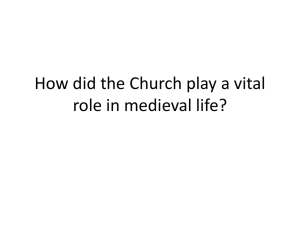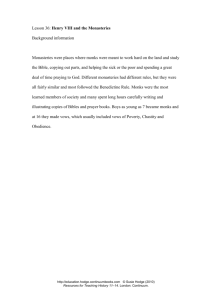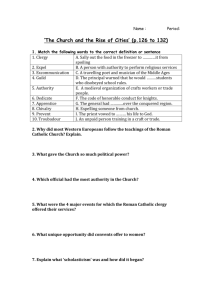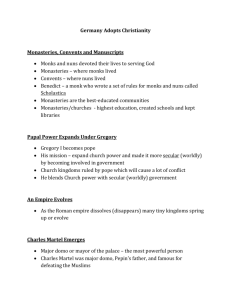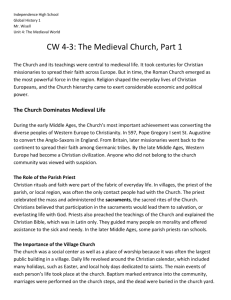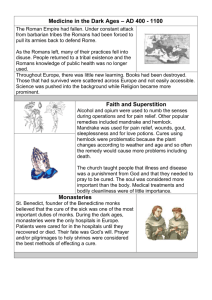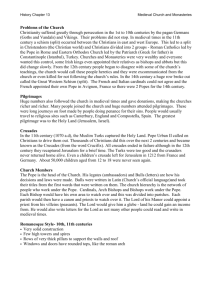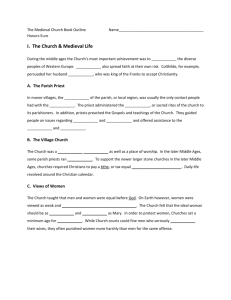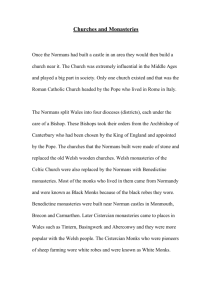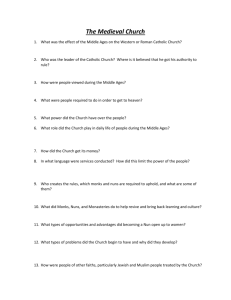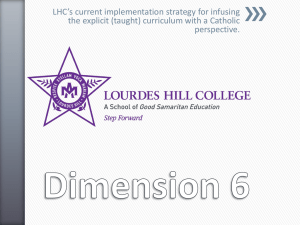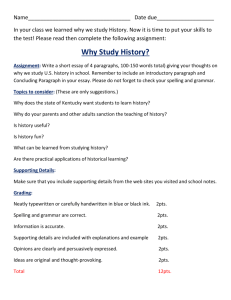Guided Reading Unit 2
advertisement
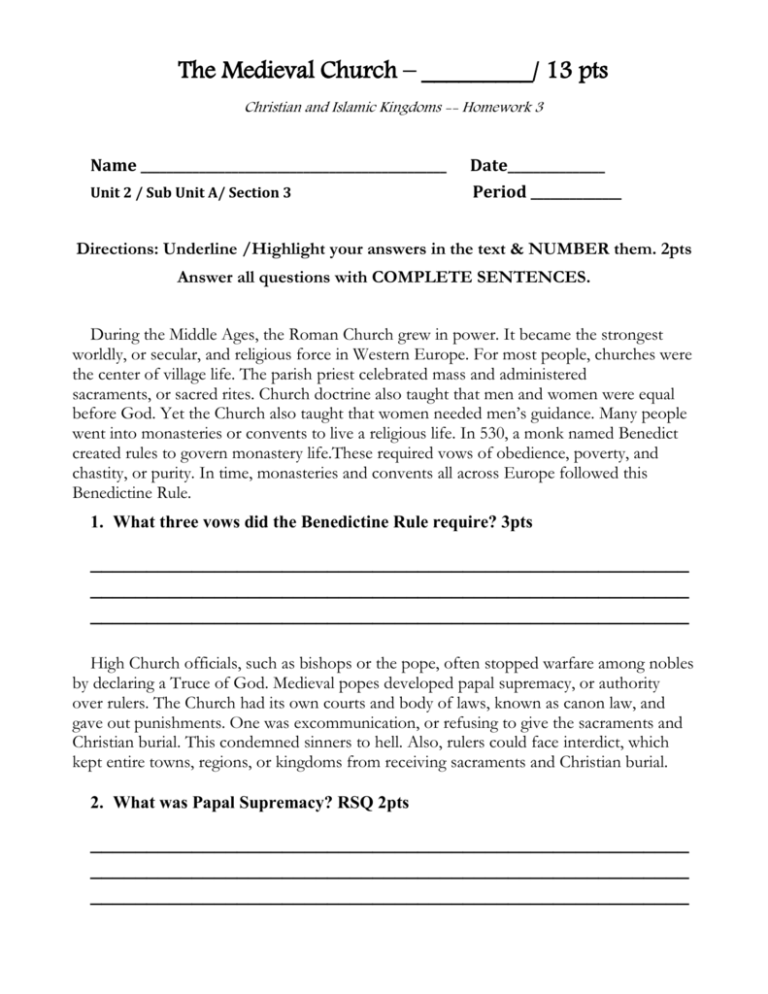
The Medieval Church – _________/ 13 pts Christian and Islamic Kingdoms -- Homework 3 Name _______________________________________________ Date_______________ Unit 2 / Sub Unit A/ Section 3 Period ______________ Directions: Underline /Highlight your answers in the text & NUMBER them. 2pts Answer all questions with COMPLETE SENTENCES. During the Middle Ages, the Roman Church grew in power. It became the strongest worldly, or secular, and religious force in Western Europe. For most people, churches were the center of village life. The parish priest celebrated mass and administered sacraments, or sacred rites. Church doctrine also taught that men and women were equal before God. Yet the Church also taught that women needed men’s guidance. Many people went into monasteries or convents to live a religious life. In 530, a monk named Benedict created rules to govern monastery life.These required vows of obedience, poverty, and chastity, or purity. In time, monasteries and convents all across Europe followed this Benedictine Rule. 1. What three vows did the Benedictine Rule require? 3pts _____________________________________________________ _____________________________________________________ _____________________________________________________ High Church officials, such as bishops or the pope, often stopped warfare among nobles by declaring a Truce of God. Medieval popes developed papal supremacy, or authority over rulers. The Church had its own courts and body of laws, known as canon law, and gave out punishments. One was excommunication, or refusing to give the sacraments and Christian burial. This condemned sinners to hell. Also, rulers could face interdict, which kept entire towns, regions, or kingdoms from receiving sacraments and Christian burial. 2. What was Papal Supremacy? RSQ 2pts _____________________________________________________ _____________________________________________________ _____________________________________________________ 3. What two actions could the church take to punish Christians; list and explain? 4pts ____________________________________ ____________________________________ ____________________________________ ____________________________________ ____________________________________ ____________________________________ ____________________________________ However, as Church wealth and power grew, so did corruption. Many priests, monks, and nuns ignored their vows. Throughout medieval times, there were calls for reform. In the early 900s, the Benedictine Rule was brought back, and many monasteries and convents began to change. Other reforms came from friars, or monks who traveled and preached to the poor. The first order of friars, called the Franciscans, was founded by St. Francis of Assisi. 4. What caused corruption to grow within the church? 2pts _____________________________________________________ _____________________________________________________ _____________________________________________________ In the Middle Ages, Jewish people settled all across Europe. However, by the late 1000s, prejudice against them had increased in Western Europe. The Church even issued orders to keep Jews from owning land or having certain jobs. Thousands migrated to Eastern Europe.
